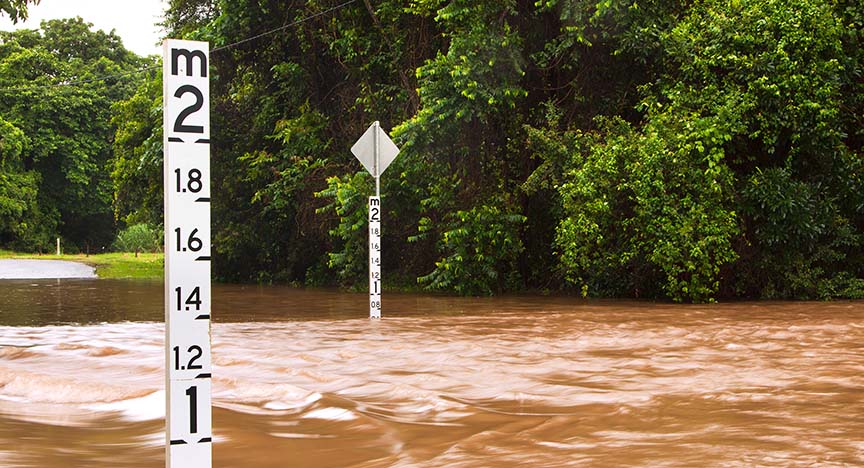
With Tropical Cyclone Jasper weakening, all Cairns and Hinterland health facilities are back to full service with the resumption of outpatient appointments and elective surgery.
All patients whose appointments were disrupted as a result of the cyclone will be contacted to reschedule them.
None of the region’s nine health facilities, including Cairns Hospital, have experienced any significant damage as a result of the Category 2 storm making landfall last night.
However, there has been some minor disruption due to infrastructure failures outside of the health service’s control and some rural facilities will take a little longer to see patients whilst third party providers rectify the situation.
Cairns and Hinterland Hospital and Health Service Chief Executive Leena Singh said emergency services had been maintained throughout the cyclone.
‘We have not received any reports of injuries as a direct result of Tropical Cyclone Jasper, and our facilities have fared well,’ she said.
‘Some of our facilities are without mains power but are running on generators meaning we are operational and receiving patients.
‘Cairns Hospital’s maternity ward was very busy last night, with 9 babies born in 24 hours.
‘I would like to acknowledge the hard work of all our clinical and non-clinical staff who continued to work and put patient care first to ensure all of our facilities remained operational.’
Tropical Public Health Services director Dr Richard Gair said while the immediate threat of the cyclone had passed, there were still some health hazards associated with the aftermath of severe storms that people needed to be wary of.
‘Don’t use a generator or pump in a confined space, as there is a risk of carbon monoxide poisoning,’ Dr Gair said.
‘If you need to use a petrol-powered generator or pump due to power outages, please ensure your generator is in a well-ventilated area, preferably outside.
‘When the power is cut, please minimise the times you open your fridge or freezer, so you can preserve the cold temperature.
‘Contaminated food or perishable foods that have not been refrigerated for greater than 4 hrs should be discarded’.
‘If advised to boil water, for drinking and cooking it should be brought to a rolling boil and then cooled before drinking or stored in a clean, covered container in a refrigerator or cooler.’
Dr Gair urged people to steer clear of floodwaters, where possible.
‘Contaminated floodwater and mud can carry an increased risk of wound infections, diarrhoea, conjunctivitis, ear, nose and throat infections and other infections such as leptospirosis or melioidosis,’ he said.
‘Food, liquids or medicines that have come into contact with contaminated floodwater can also make you ill.’
He said people should also be wary of snakes and spiders that may be hidden inside houses or debris brought down from the cyclone.
‘If you are bitten by a spider or snake apply immediate first aid and seek medical attention,’ he said.
‘Sand-flies and mosquitoes may become a real nuisance following storms, floods and other natural disasters.
‘To minimise insect bites, wear long sleeves and long pants and apply personal insect repellent.’
For emergency help in floods and storms, contact your state or territory emergency service (SES) on 132 500.
For urgent medical assistance, dial Triple Zero (000).
For non-urgent medical assistance, contact 13 HEALTH (13 43 25 84).